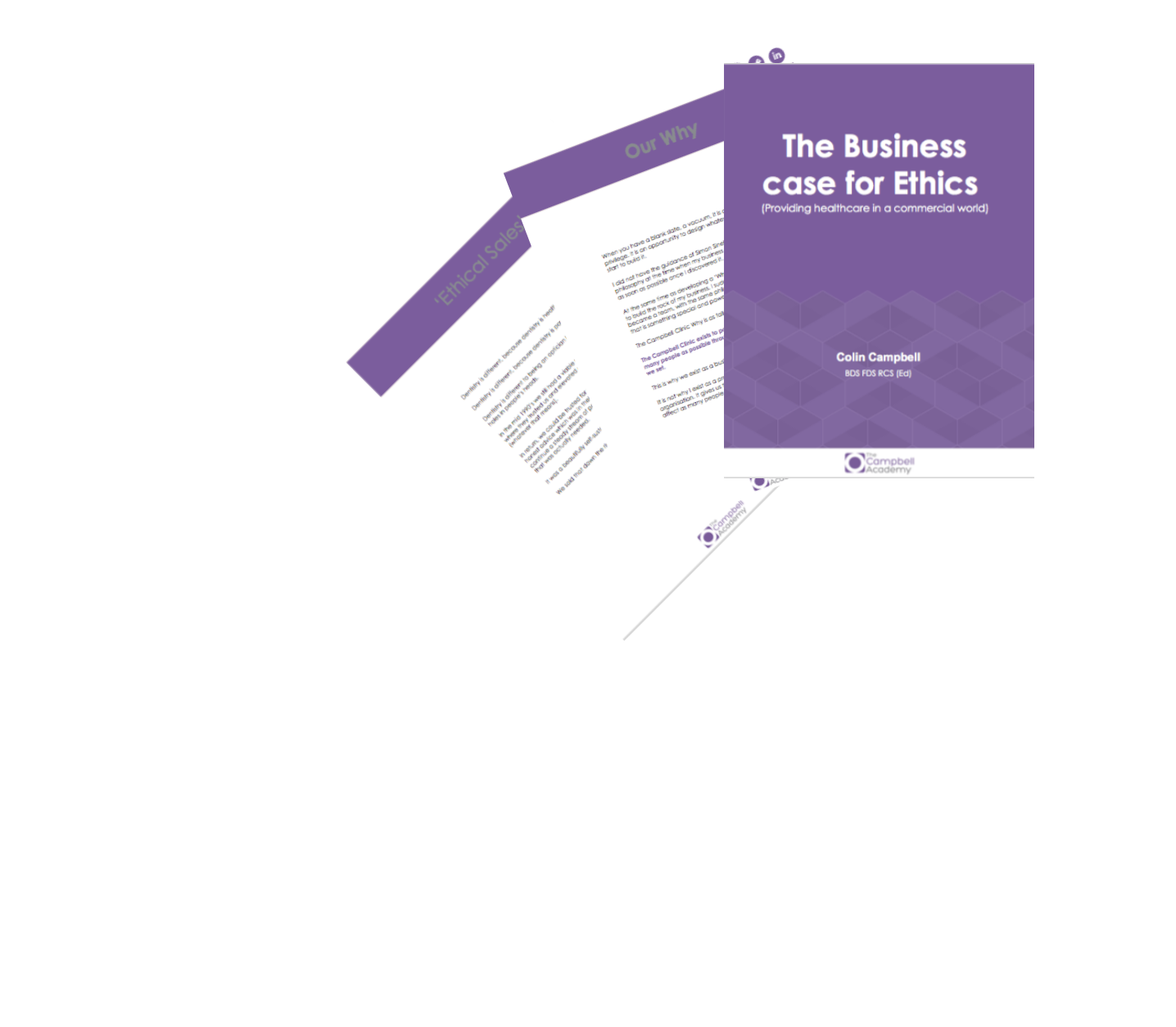
PRETHICS
The Business Case for Dental Ethics
(Providing healthcare in a commercial world)
In March 2008, the dental practice I had worked in for 10 and a half years was sold to Integrated Dental Holdings (IDH). This is the story of what happened next. The story of what I learned in trying to build an ethical private healthcare practice over 10 years and the birth of a concept we call PRETHICS.
Fill out the form to download your own copy of Colin's ebook now!

In January of 2008 I was reasonably content. My son had been born just a few weeks earlier, taking us up to three children. I had worked in the same ‘husband and wife owned’ dental practice for ten and a half years.
I had managed to create a little eco system of my own, having being an associate who also had his own associates. I also had one of the first PDS Dental contracts for the provision of oral surgery in practice and was placing 100’s of dental implants a year.
I was able to take as much time out of the practice as I needed to fulfil my teaching commitments (although my boss hated this). I was genuinely chugging along quite nicely.
From time to time my friends would ask me why I worked in practices which were less than posh, I explained that I was happy not to own my own business and to be able to go home in the evening without worrying about all that business stuff.
Life has a way though of getting in the way. My wife had a significant health scare that January which set me back and made me think, even though it turned out all was well after investigations.
At the same time my 6-week old son had a similar health scare which made my wife and I talk about whether we were doing the right things, living the right life and being the people that we wanted to be.
In the end, we decided we were happy with the way things were… little did we know.
A few weeks later in early March I had a meeting arranged at my house one Tuesday evening with my two bosses (husband and wife) ostensibly to discuss a further oral surgery contract.
The meeting didn’t go that way, they sat down in my living room and explained that the practices had been sold to Integrated Dental Holdings – IDH, who would be taking charge on the 1st April.
So, like that, just like that, my life turned upside down.
10 and a half years of building what I hoped was ethical practice within a practice which had previously followed three years of hospital employment as a House Officer at a Senior House Officer level, cast aside by someone else for money.
I was ‘reassured’ by the bosses that nothing would change, and that IDH would learn from us and not the other way around.
How I laughed (sarcastically).
On the 27th March, two and half weeks later I handed in my notice and left.
This is the story of what happened next. This is the story of what I learned in trying to build an ethical private healthcare practice over 10 years.
This is important, because it explores the horrible interface between money and moral philosophy, between commercialism and medical ethics.
We call it PRETHICS.
When you have a blank slate, a vacuum, it is an enormous privilege. It is an opportunity to design whatever you would like and start to build it.
I did not have the guidance of Simon Sinek and his Start with Why philosophy at the time when my business started, but I adopted it as soon as possible once I discovered it.
At the same time as developing a ‘Why’, a foundation upon which to build the rock of my business, I suddenly became us and we became a team, with the same philosophy, the ethical approach; that is something special and powerful.
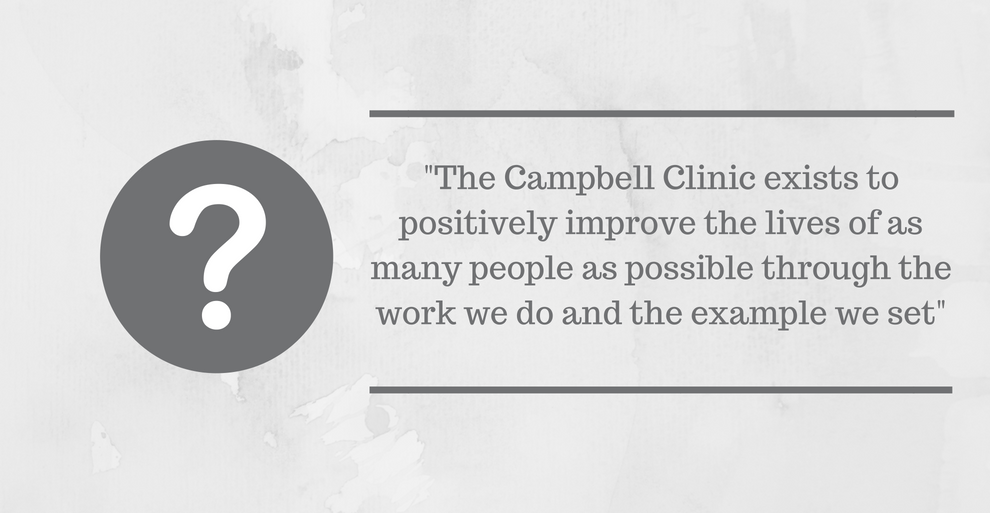
This is why we exist as a business, it frames everything that we do.
It is not why I exist as a practitioner, it is why we exist as an organisation. It gives us the opportunity to influence and positively affect as many people as possible.
In short, it gives us the opportunity for meaning.
Our Why was developed five years after that night in 2008 when my bosses turned up to my house. I had a journey to make, I had to form a partnership and break a partnership. I had to understand that it was ‘my way or the high way’. I needed to realise that not everybody sees the world the way that I do.
I needed to go to my depths to explore what I thought dental ethics was and how moral philosophy affects how we go about our work and our day to day lives, particularly when working in healthcare.
I needed to be able to build an environment which would be good enough to treat my children, good enough to treat my family and therefore good enough to treat everyone else.
We’ve lost some people along the way, but we gained more who thought the same thing that we did. Who wanted to work in a place like we did, who wanted to provide healthcare the way we do.
We attracted and developed a tribe, and the strength of the tribe is stronger than the strength of the individual.
As part of our Why we developed a concept called PRETHICS. It’s quite simple as you can see from the image below, it is a linear analogue scale with profit on the left and ethics on the right.
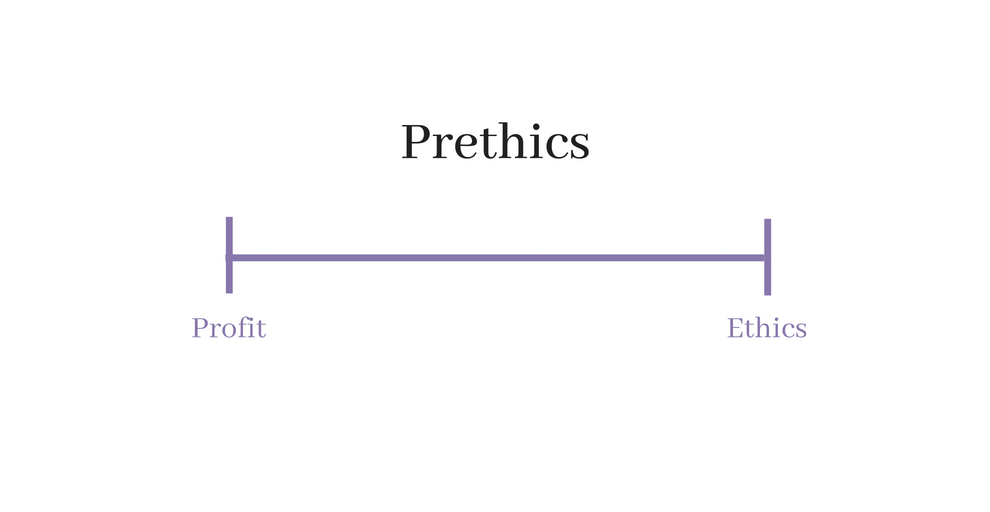
As far as I’m concerned it is not exclusive to healthcare but it certainly applies to it. Just position yourself on the scale.
If you’re too close to profit then you’re a crook and you’re extorting money from your patients for your own benefit with no regard to their needs, but if you’re too close to the ethics you will die. Profit to a business is like oxygen to us. It’s not the meaning of life but it is essential for it. Without your business making a profit you have no opportunity to invest, to grow, to develop, to make an environment which is truly worthy of your skills and talent and worthy of your patients and team.
Why not position yourself on the scale and then without bias or prompting ask other people to position you too.
Why not position your team or your business?
In the next few paragraphs I hope to argue the point that a balance in PRETHICS is the best way to provide a long-term and sustainable business, particularly in healthcare and dentistry in years to come, but you may not be convinced. It won’t be for everyone.
The trouble with ethics and healthcare ethics is that it’s a matter of opinion.
If you explore ethics from the very beginning of the Greek philosophers and on through Eastern philosophy and the modern Western philosophers you will understand that it's an intellectual argument. The individual over the population or vice versa.
Do we look after ourselves or do we look after the group? If we look after the group does that look after the self, if we look after the self does it damage the group.
Medical ethics is a branch of moral philosophy, and moral philosophy is the foundation of our society.
What society ‘believes’ dictates how we live our lives. It dictates the behaviours of our citizens and the laws that govern our citizens. It dictates the actions of our politicians. I would argue that healthcare professionals should be protected in society by law to ensure that they can practice freely and without defence for the greater good of society. English law would argue the opposite, that the patient should be protected above the healthcare practitioner therefore keeping the healthcare practitioner ‘in check’.
Some peoples view is that healthcare (and particularly dentistry) exists to give the maximum benefit for the dental professional, I would argue that the most sustainable business model is the ethical model which puts patients interests first and therefore leads to life time value, repeat business and recommendation because you’re trusted.
Building an ethical business is to build trust and longevity. It is to be there day after day for your team and for your patients knowing that the game is long and in the end, will never be won. The baton will only be passed on to the next person.
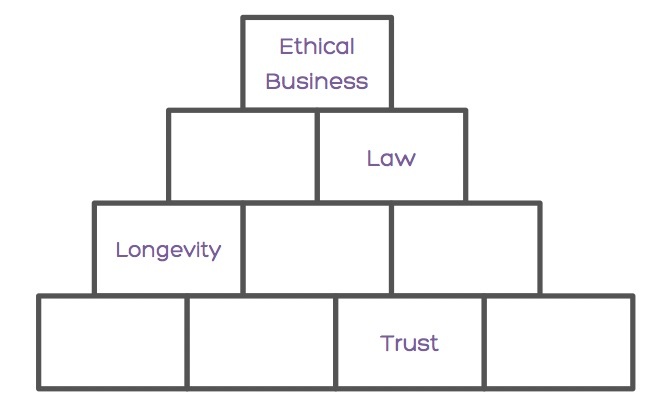
I have practiced dentistry as a qualified practitioner since 1994 and I believe that dentistry was more ethical then than what it is now.
The commercial influence on dentistry has grown and grown since the mid 90’s and has peaked the second decade of the 21st century.
Dentistry has become a product.
White smiles, smile design, straight teeth and no dentures. Everything is a solution to a problem that society says should be fixed.
Most of it, in these examples, is cosmetic.
When I qualified in 1994 I had no idea of the possible salary that dentists could earn. None at all.
I decided to work as a hospital practitioner as a House Officer in oral surgery and medicine at Glasgow Dental Hospital and School.
My starting salary was £13,500 a year.
I immediately earned more than my Dad.
I was embarrassed at the level of my income despite the fact that it was 50% of the level of my classmates who had gone straight into practice and vocational training.
Little did I know that the upward trajectory of income for a full time dental practitioner could easily hit 6 figures and for many higher than that.
It is worth noting here that at the time of publication of this document, the starting salary for a Consultant, for example a Paediatric Surgeon is £77,000 a year. It’s also worth noting that many dentists feel that this salary is beneath them and that they’re entitled and worth considerably more than that.
In my first five years of practice I lost ‘enormous amounts of money’ as my classmates from dental school sky rocketed through the income brackets towards 6 figures.
That made no difference to me as I was learning lots and developing my surgical skills and having a lot of fun at the same time.
A new breed of dentist was emerging, providing cosmetic dentistry, dental implants or orthodontics and was able to demand and achieve huge salaries. They were able to filter this back through the profession in stories and overt demonstrations of wealth.
This created a field of new ‘would be’ dentists who wanted ‘some of that’.
As dental incomes rose further, fuelled by the implant boom and the huge and over inflated salaries of NHS orthodontists in practice, teenagers started to see dentists driving fancy cars, buying big houses and going on expensive holidays. The birth of social media in the first decade of the 21st century magnified and exacerbated this with photographs of young ‘play boy’ style dentists driving fancy red cars with huge gold watches and travelling the world being something that was seen as alright for people who was able to get into dental school.
It’s not that dentists didn’t earn money before, it’s just that they were a little bit more-subtle about how they spent it, or at least demonstrated how they spent it. By the time I was lecturing to vocational dental practitioners in the mid 2000’s many of them were demanding 6 figure salaries immediately after qualification because ‘they were worth it’.
Enter the Cosmetic Dentist.
A-level students at school would tell me that they wanted to be a ‘Cosmetic Dentist’ as if that was different to any other type of dentist.
The only difference between Cosmetic and Aesthetic is that there are no ethics in Cosmetic.
If it seems that this does not tie in with a business discussion about being ethical and honest, the problem is that this is a short-term game.
Straightening people’s teeth as quickly as possible for fashion is not a decade business plan.
Piling them high and selling them cheap for dental implant surgery has no longevity.
Struggling from month to month to pay the repayments or rental on your fancy car only effects your clinical decision making in surgery.
Sadly, at a recent lecture that I provided to 200 dental students I asked the question, how much would you like to earn for the rest of your career? A fourth-year dental student told me he was worth £300,000 a year.
Four times the Paediatric Brain Surgeon
Part of this problem was confounded by the ‘ethical sales’ explosion in the mid 2000’s. How could we drive our businesses, how could we get more people to ‘convert’?
It was easy, we needed to upsell (more expensive treatments than the patients actually needed) and cross sell (additional equally priced treatments that they also really needed).
Upsell and cross sell was a well-recognised format through all types of selling, and dentistry was the same as any other business.
Wasn’t it?
Dentistry is different, because dentistry is healthcare.
Dentistry is different, because dentistry is part of medicine.
Dentistry is different to being an optician because opticians rarely drill holes in people’s heads.
In the mid 1990’s we still had a viable social contract with patients, where they trusted us and elevated us to the status of ‘professionals’ (whatever that means).
In return, we could be trusted for providing them with unbiased and honest advice which was in their best interests because to do this would continue a steady stream of patients through our door for treatment that was actually needed.
It was a beautifully self-sustaining model.
We sold that down the river with up-selling and cross selling.
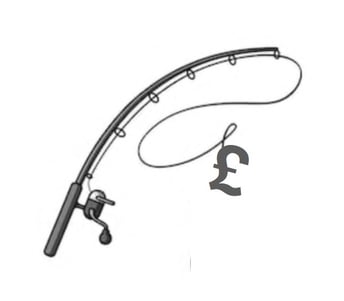
So here we were, in the mid 2000’s in the height of a frenzy, like the wolf of Wall Street.
Orthodontists earning a million pounds a year, implant dentists earning half or three quarters of that, ‘cosmetic’ dentists earning half a million a year.
The people coming into dentistry wanted some of that, and it started to attract a cohort of people who were not ‘healthcare’.
The slow death of dentistry began.
Outside of this people didn’t like it so they looked at ways of clipping the wings of highly paid dentists who didn’t really give a monkey’s about the way patients were looked after, in general.
So, enter the GDC in a new form to bring things back into line and to take control away from the dentists.
More than a mess developed.
In 2018, we have a fractured profession. Part of the profession wish to return to the ways of safe, trust worthy and ethical healthcare practitioners, the other half want money.
The GDC want to kill us and everyone has to practice defensively which in turn affects the patients.
Generally, dentists want out of dentistry as quickly as they can with the most money possible from the sale of their business (if you’re lucky enough to have one).
Is there another way?
We could set an example for a different path. We could accept our positions as a specialisation in medicine and become trusted, highly trained and honest healthcare professionals.
We could set that example to people from schools and who are keen on dentistry, show them that although it takes a long time to become a practitioner like that the journey is fantastic and the end result is worth it.
We could counter the example of ‘play boys’ and ‘play girls’ who sell a story to children of a golden goose that lays golden eggs.
There is never any such thing as a quick, free lunch.
I entered into my new practice setting in 2008, maintaining a foothold in the NHS with an NHS specialist practice in oral surgery and orthodontics in Alfreton, together with a pay as you go private specialist practice in Nottingham as a partner.
I quickly learned that in a position of authority within a dental practice the tone is set by the boss.
Over a period of years, the philosophy developed and crystalized and PRETHICS was born.
This allowed me a way to communicate to my team where we needed to be, it allowed us to develop our philosophy of ‘like a member of your own family’ way before the daughter and sister test emerged through the NHS.
We try to treat everyone like a member of our family, our team, our suppliers and our patients.
That doesn’t mean we love everyone, it means we’re stern when we need to be and strong when people are not nice to us. It also means we protect our own and always try to make the right decisions as we would if we were looking after someone who was in our own family.
That was the story we decided to tell, although I am no longer associated with the specialist practice in Alfreton we built the philosophy there too. Now it exists at The Campbell Clinic in Nottingham and through The Campbell Academy, our Laboratory and our Research department.
We tell this story widely to our patients, to our referring dentists and to our suppliers, and then we allow them to hold us accountable and to try to be ‘what we say we are’.
It means now that the majority of the new patients who come to the practice are recommended to the practice either by dentists or by friends; 20 years in and it works.
Developing a business centred around a philosophy instead of a short-term game takes time, hard work, perseverance and courage.
We have 10 practices within a mile of us which offer the treatments that we offer cheaper but we’re still one of the busiest practices.
Not everyone wants to pay more money for something better, but many people do. Many people understand the concept of ‘you’ll pay a lot but you’ll get more than you pay for’.
Building for a long time means racing to the top, not racing to the bottom. It means not entering into a price war with your colleagues and charging what you feel is appropriate for the services that you provide.
It means working with your colleagues, not seeing them as the enemy.
There are 30,000 dentists in the United Kingdom and 60,000,000 people. There are plenty of patients to go around.
If you plan for 10 years-time then you don’t have to worry about this week. It becomes a wonderful way to live.
The many crises that happen whilst running a business from week to week become little bumps instead of huge mountains along the way. I decided to try and build a business that will last 100 years, way beyond me and instead of becoming more stressful that has become less stressful because we have time.
At 46, I am closer to 50 than 40, but I would love to think that I will still be working in some capacity of the business in my 80’s. It’s not for sale, it’s not about profit in the short term.
Building a PRETHICAL business is about understanding enough.
It’s about realising that a dental practice is not a corner shop and the principle doesn’t get to take all the money that is left in the bank at the end of the month.
It’s about committing to developing teams, environments, equipment, training, marketing and infrastructure to provide a better environment for patients and for staff which will grow and grow as word gets around about the way that you go about your business.
Understanding enough and building a business on that basis takes time.
If you could earn enough you could spend any surplus money that was generated by your business to make it better, healthier, happier and more valuable.
Your business would grow and even more would come your way even though you already have enough.
“It’s alright for you, you work in a private practice”. For 14 years I worked in either a hospital setting or an NHS practice, this concept holds true for both.
Providing dignity, honesty and courtesy to patients is not restricted to private healthcare. Developing teams and empowering individuals to do more than the minimum is not restricted to private healthcare. Making the most of your environment is not restricted to private healthcare. Setting your ‘enough’ is not restricted to private healthcare. The first step is for the boss, the leader, to decide on a different path other than the one that takes all the money out of the business at the end of the month, because they’re entitled to.
Once this path is taken the benefits become clear and the journey becomes enjoyable and fulfilling.
I have seen other practices adopt or reflect this strategy and improve, become happier and be in a better place.
I believe this is the future of healthcare.
I believe understanding the importance of making profit but not at the expense of dental ethics, and a balance that must be created by leaders, provides the absolute future and success for healthcare going forwards, and in particular independent dental practices.
Building trust with patients and their families, delivering high quality with courtesy and dignity and explaining to everyone involved in the business that profit is essential and not the meaning of the business is the key to success over time.
This model can be taught, it can be explained. It starts with why and breaks down to impact on every single person in the business. Once everyone clicks into place the results are astonishing.
Why would you continue to try to earn more and more, month after month to pay for your car or your holidays, on a treadmill that never seems to end, when you could be loving your work, your patient and staff interactions and watching people grow and blossom into fantastic individuals.
After that meeting in March 2008 I handed in my notice 2 and half weeks later, I left the practice with nothing.
Alison (my wife) and I battened down the hatches for a 70% income reduction just at the time that my third child had arrived. I created a vacuum and wondered if I’d ever see the end of it.
The day after the bosses arrived at the house I phoned a practitioner in Nottingham whose practice was close to mine and asked him he wanted me to come in as an associate with a view to partnership.
On the 1st April I started, taking two members of the team from my existing practice with me. At the same time, I negotiated a contract for a clinic in Alfreton and took the practice manageress from the existing practice to be a 50% partner in the business (she now owns the business outright).
The practice that I walked into on the 1st April 2008 turned over roughly £250,000 that year. I became a partner in 2009 but it soon became evident that the philosophical approach of the partners was too divergent and either I would have to leave (because of my ethical stance) or my partner would.
In 2013, I became the sole owner of the practice and it became The Campbell Clinic.
From £250,000 turnover in 2008 the practice, the lab and the Academy will turnover £3,000,000 in this financial year.
That’s a 12 x increase over that period of time.
PRETHICS and ethical dental practice isn’t a hobby, it’s a financial necessity.
Every year our turnover has increased and every year our profit has increased. My business turns over more money than I could ever have imagined and it allows us to do some extraordinary things.
Just one of those things is our Social Legacy Project, where we donate 1% of our turnover to projects and good causes. That’s £30,000 a year.
We now have four designated charities chosen by the team. This year the Chief Executive of Bridge2Aid informed us that we are responsible for the emergency dental care of 300,000 people in East Africa.
That is a lot for a little practice in Nottingham.
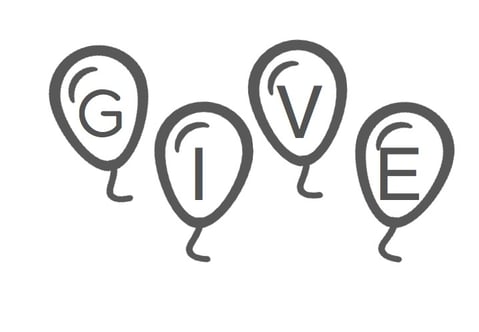
We have 33 members in our team and 13 clinicians in a converted bungalow that you shouldn’t be able to swing a cat in.
We have a research department with two post PhD’s, a digital dental laboratory and a teaching academy business. The Academy trains hundreds of dentists a year and delivers a variety of dental implant courses.
We place between 300-400 dental implants per year and have our own multidisciplinary team that meets every Wednesday to discuss cases.
That multidisciplinary team has access to 7 specialist list clinicians.
That didn’t happen by accident, and it didn’t happen in a month. This project is 10 and a half years old in a location in Nottingham but is 25 years old inside my head.
Why not think about it, think about adjusting the philosophy of your business to provide a long-term PRETHICAL business which attracts more and more people, more staff and more patients to your new and reinvigorated philosophy.
Tell the story, it attracts like-minded people.
This isn’t the end of our story, it’s the start. It’s the start of 100 years.
The business will change and alter over that time but the philosophy, I hope, will remain the same
I would be happy to look after your family because where we are, I would be happy to look after mine.
Thank you for reading,
Colin Campbell
Book a FREE Consultation
Let's start with a 30 minute phone conversation with one of our Campbell Academy Directors to discuss your advanced training goals and how our courses can help you get there.
Following the call, you will receive a personalised action plan that maps out your Implant Education Journey with The Campbell Academy.
Request your free consultation by filling out the form: